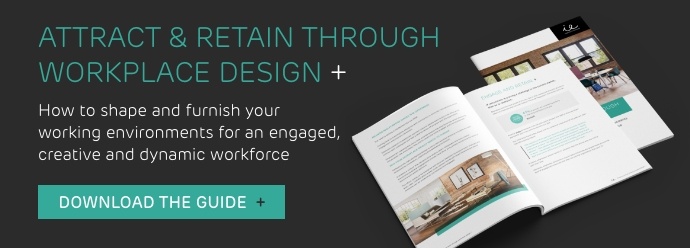June 21st 2024 is National Take Your Dog to Work Day and plenty of offices will be participating in the fun. How can you prepare your office to greet your canine pals? And could you think about making the arrangements permanent?
What does being a pet-friendly office actually mean?
It can mean many things, from allowing people to bring their pets into the office on special days to permanent arrangements where dogs accompany their owners every day. Alternatively, it can mean pet insurance and other forms of support to help workers care for their animals, even when they can’t bring them to work.
For Amazon, it is a big commitment including hosting thousands of dogs every day and offering facilities, treats and special events for workers’ canine companions:
“In North America, many Amazon offices are part of a program called Dogs at Work—also known as the ‘Woof Pack”—which allows employees to register their dogs and bring them to work in select dog-friendly corporate office buildings. The program has more than 8,000 registered dogs and an active events schedule open to all employees. Events include everything from virtual dog treat baking classes to ask-a-veterinarian seminars to street fairs featuring dog pools, doggie swag, and agility courses.”
Which companies are pet friendly?
As well as Amazon, Google, Salesforce, Airbnb and Uber are big names that are embracing an official ‘dogs at work’ policy. But many companies have had informal arrangements in place for years. With more interest than ever in bringing pets to work, however, some employers are looking to formalise and extend the support they offer.
The trend for dog-friendly workplaces is gathering pace
The pandemic saw a spike in pet ownership as 3.2 million dogs and cats joined the families of the full-time employees in UK. Now as companies scrabble to encourage workers back to the office more regularly, employees are naturally worried about leaving their furry friends home alone.
As a result, more and more companies are allowing workers to bring their dogs to the office and making other provisions for ‘pet parents’.
Why become a pet-friendly company?
Right now, between 10% and 20% of employers have a pet-friendly policy (CMI), but: 70 - 80% of dog owners say they would bring their dog to work if they could (CMI).
Meanwhile, 94% of all workers support having pets in the workplace (Live Career)
In addition, the Live Career research found:
- 52% of pet owners said that pet-friendly benefits and policies are important in a job search.
- 49% said that a pet-friendly work environment could convince them to accept a job offer.
- 41% of people said pets in the office would contribute to their sense of satisfaction.
- 46% of people said they would recommend their employer to a friend if they were pet-friendly.
What are the benefits of becoming a pet-friendly office?
Dog owners who are allowed to bring their pets to work feel many benefits. They’re free from the worry of leaving their animals at home while enjoying the fellowship of their pups whilst they work. Others in the workplace can enjoy the company of an office dog, too. And the evidence is more than anecdotal.
1. Increased employee happiness and well-being
Pets can provide emotional support and reduce stress levels, which can lead to a happier and healthier workforce. Research from Habri says 91% of employees who brought their dog to work found their mental health was improved. Meanwhile, a Purina study found that 81% of all workers said a pet-friendly office is a happier place to work in.
2. Improved workplace morale
Having pets in the office can help to create a more relaxed and welcoming environment, which can lead to better collaboration and teamwork. In the Habri study, 75% of workers felt that office dogs could help diffuse stressful or difficult situations at work.
3. Increased productivity
Some studies have shown that pets in the workplace can improve productivity by reducing stress levels, increasing job satisfaction and maintaining engagement. The Habri study found 85% of employees who work for a pet-friendly company reported they rarely miss a day of work.
Additionally, employees who bring their pets to work are more likely to stay longer and work longer hours, since they do not have to rush home to care for their pets.
4. Enhanced company image
A pet-friendly workplace can be a great way to attract new talent and differentiate your company from competitors. Amazon have numerous pages on their website dedicated to explaining their pets at work policy to prospective employees (while sharing cute photos).
5. Health benefits
Pets can provide health benefits to their owners, such as reduced blood pressure and decreased risk of heart disease. Allowing pets in the workplace can promote healthier habits and encourage employees to take breaks throughout the day to care for their pets.
What’s it like bringing your dog to a pet-friendly workplace?
In this interview on the AWS website, Luke, an Amazon worker explains the numerous benefits of their dog-friendly policy to his life/work balance and the welfare of himself and his pet.
"Typically, I can just sit with Thor at my desk. The office vibe is very relaxed, my coworkers love petting them. I keep a baby gate at my desk so my cubicle can be a little playpen for them. I also keep a dog bed at my desk and try to bring in some toys that aren’t very loud. I take them for a walk at noon and at 3 p.m.—it’s a good excuse to get away from the screen and stretch my legs.”
What do you need in place to support a ‘pets in the office’ policy
So, what will you need in place to support pets in the office policy?
Evaluate the Space - Assess the workplace to determine whether it is suitable for dogs. Consider the size of the office, the presence of other pets or people who may be allergic or afraid of dogs, and the amount of outdoor space available.
Develop a Policy - Establish guidelines and policies for dogs in the workplace. Include information on appropriate behaviour, vaccination requirements, and the responsibility of pet owners. Make sure you have a way of withdrawing permissions for certain dogs if it doesn’t work out.
Check your own insurance and/or pet insurance policies - Can you provide adequate cover for damage to third-party property or injury to third parties (including other employees)
Make accommodations - Ensure that the workplace is set up for dogs, such as designated areas for dogs to rest and play, stair gates to prevent access to certain areas, access to water, and waste disposal stations outside the building.
Communicate with clients and customers - Inform clients and customers of the dog-friendly policy and provide guidelines for their behaviour around dogs.
Monitor and Adjust - Monitor the behaviour of dogs in the workplace and make adjustments as necessary to ensure a safe and productive environment for all employees and their pets.
What are the disadvantages of having pets in the office?
There are many benefits to being a dog-friendly employer, but doing it properly requires a lot of effort. You have to get the consent of everyone involved and keep monitoring its success. Doing it full-time may create a lot of admin, extra work, and (potentially) mess!
That’s why it tends to be smaller agencies and larger companies that seem to have more success with permanent schemes. It’s easier to manage with just a few participants - or if you have a lot of planning resources available.
Amazon is a big company with lots of HR and FM resources. They have spent time and effort creating policies and a registration scheme for workers and their pets who want to participate. On this scale, it simply can’t be ad-hoc (the Amazon scheme is set to grow to 10,000 dogs).
Could it all get too much?
As the animal psychologist, Caroline Wilkinson says:
“Things to consider in the office policy might include how many dogs can comfortably attend each day. Having a free-for-all can end up with chaos and stress, for both the humans and the dogs of the office. It’s important to not only consider how much physical space is available for those dogs, but if there are easy ways to separate them – either by child gates or doors – if the need arises.”
Dog lovers easily forget there are those who are not as crazy about their canine companions as they are.
This HRNews poll suggests support for pet-friendly workplaces is much more 50/50 than other research. It also shows opposition to the policy may come from older age groups within the workplace:
”More than half of respondents (51%) think that a pet-friendly office is a good idea. Out of all the age groups, 16–24-year-olds were the biggest fans of dogs in the office. However, 35% of 45–54-year-olds are against the idea of pets in the office – more than any other age bracket. Reasons cited include phobias, allergies, and pets being a distraction.”
How else can employees support pet owners?
Being pet friendly doesn’t have to mean hosting dogs at work all the time. Participating in “Take your Dog to Work Day”, may be enough to show support for pet owners and get some cute photos for your website - without making long-term commitments to the policy.
But it certainly offers an opportunity to test the water if you want to think about offering the option full-time.
There are ways of acknowledging and supporting pet owners even if you don’t think you can host them in the office. Many businesses are now offering pet stipends, pet insurance, and ‘pet bereavement days’ as part of their employment packages.

Pet-friendly employers could win the battle to recruit and retain
However you do it, respecting and caring for the needs of pet owners is an increasingly popular way for businesses to bring more people back to the office and enhance worker well-being. It offers lots of opportunities to build closer bonds between workers and employers.
But it may be a lot of work to implement a pet-friendly office permanently and at scale. Not every dog will be the perfect work companion and not every office will be suitable to host a canine crèche. Yet, those who can accommodate their employee's furry friends often add a new dimension to their office cultures.
With thanks to all the IE dogs and their owners (modelled above) who participated in 2023's Take Your Dog to Work Day.
Editor’s note: this post was republished in May 2024 for accuracy.













